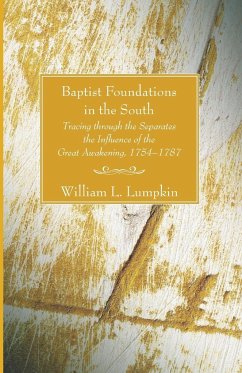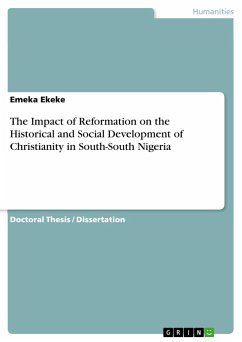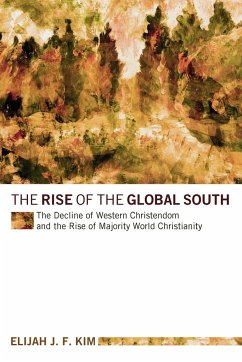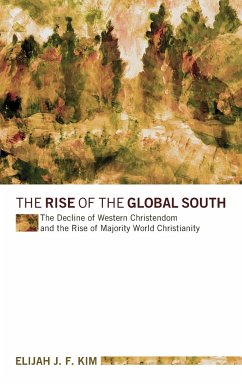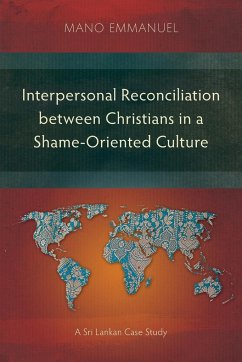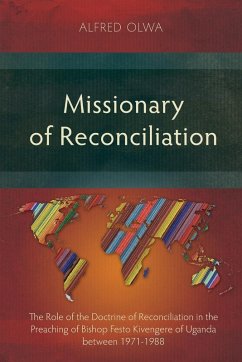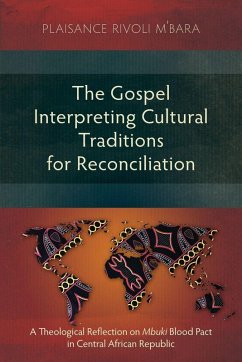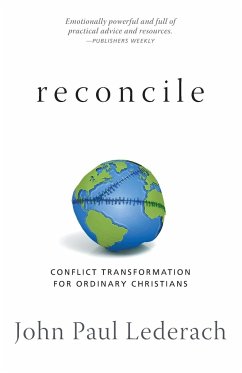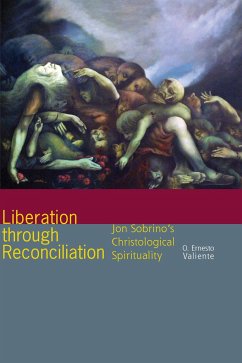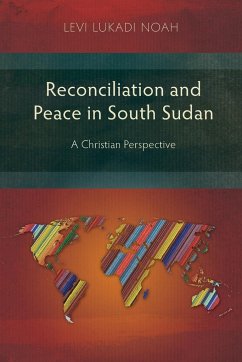
Reconciliation and Peace in South Sudan
A Christian Perspective

PAYBACK Punkte
8 °P sammeln!
This work, carried out prior to the creation of The Republic of South Sudan, focuses on the Christian perspective of reconciliation and peace in South Sudan. In a country gripped in what was set to be, until recently, Africa's longest running civil war the Sudanese state had been, on many occasions, inherently unjust, repressive, and extremely violent against sections of its own citizens resulting in long lasting conflict and war. This conflict has stretched deep into the history and geography of the country. This study sets out to investigate people's views and trends to find out whether the ...
This work, carried out prior to the creation of The Republic of South Sudan, focuses on the Christian perspective of reconciliation and peace in South Sudan. In a country gripped in what was set to be, until recently, Africa's longest running civil war the Sudanese state had been, on many occasions, inherently unjust, repressive, and extremely violent against sections of its own citizens resulting in long lasting conflict and war. This conflict has stretched deep into the history and geography of the country. This study sets out to investigate people's views and trends to find out whether the end of hostilities would mark the end of interpersonal, group, tribal, and interethnic conflict created by the war. It asks, are people ready to forgive those who could have wronged them during the war without demanding for justice? What would constitute true peace in Sudan? Do the church and the government in Sudan each have a role in bringing sustainable peace? Findings of the research show and overwhelming want for reconciliation and peace but with very different ways of reaching it. It is however recognized that to constitute true peace in South Sudan there is need for equality and justice, observation of the law, democratic governance, complete transformation, equitable distribution of resources and services, and freedom of worship. For this to be achieved it has been acknowledged that both the church and government must play critical roles. Memories of the war are still fresh in people's minds. The government must recognize the trauma people have suffered, deal with the roots of the conflict and address the crimes committed so that wounds inflicted can be healed and people can then live harmoniously. The church must teach people the biblical understanding of peace and reconciliation through repentance and forgiveness so that it can have true meaning.




